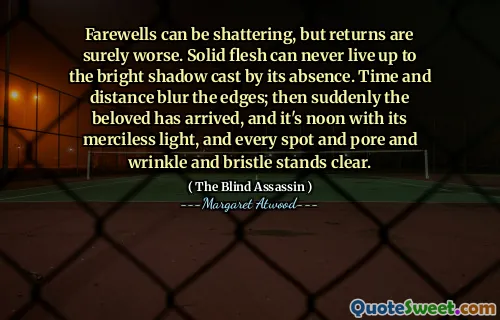I thought my heart was pure. We do like to have such good opinions of our own motives when we're about to do something harmful, to someone else.
In "The Blind Assassin" by Margaret Atwood, the protagonist reflects on the often misleading perceptions we hold about our own intentions. She acknowledges how individuals can convince themselves that their motives are untainted even when their actions may lead to harm or distress for others. This self-deception highlights a common human flaw: the tendency to prioritize our own views while disregarding the impact on those around us.
This quote underscores the complexity of moral judgment, suggesting that people frequently navigate ethical dilemmas with a skewed sense of right and wrong. It invites readers to examine how personal biases can cloud one’s judgment, leading to actions that may not align with true integrity or compassion. Through this introspection, Atwood encourages a deeper awareness of how our intentions can be obscured by self-interest.

